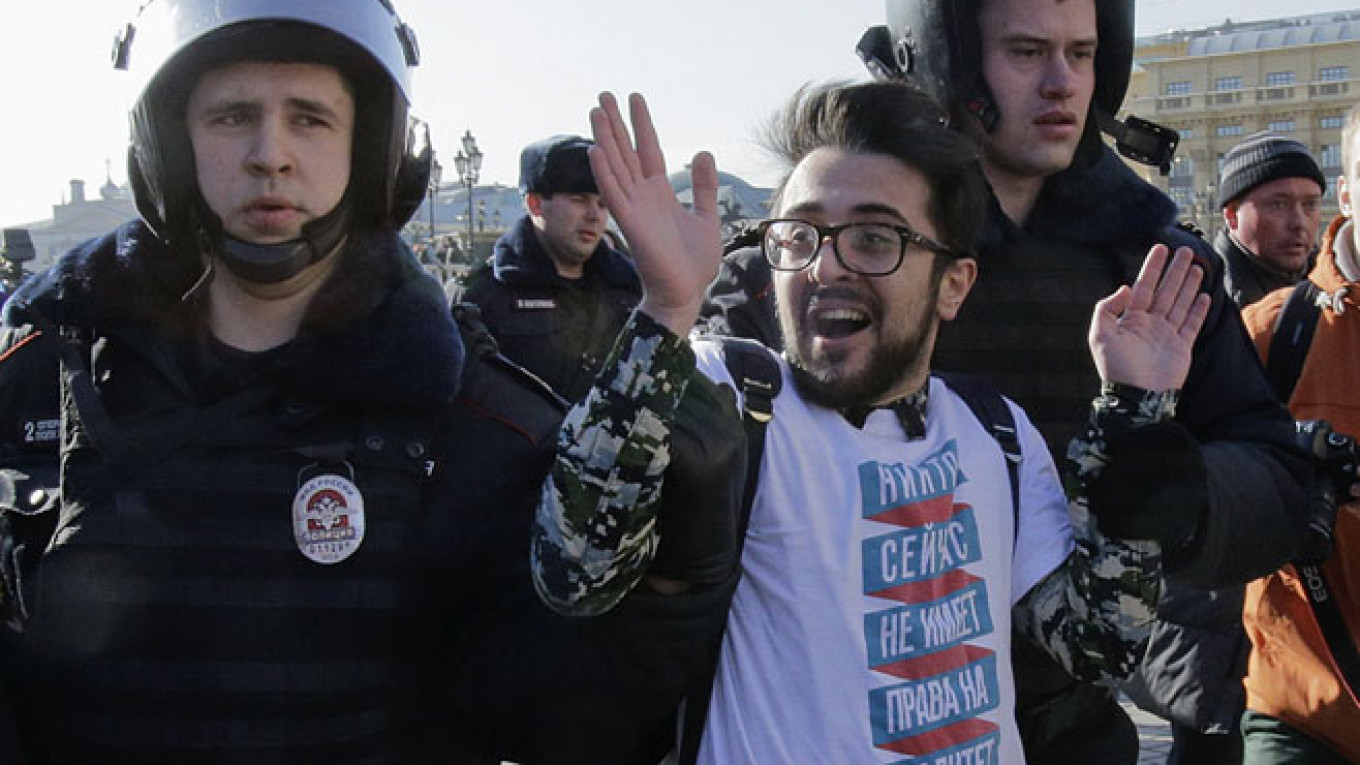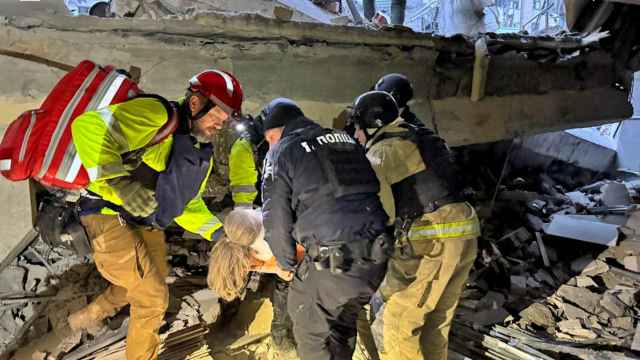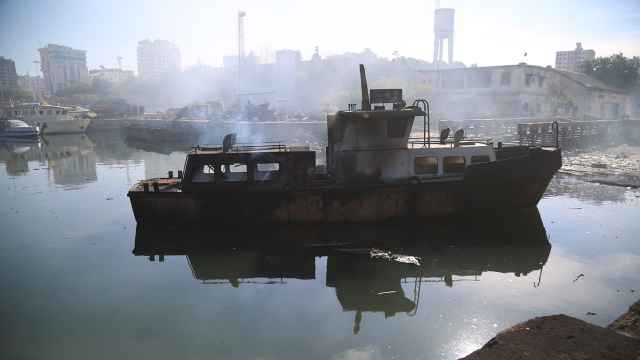Russian human rights ombudsman Vladimir Lukin called crackdowns on unsanctioned opposition protests illegal.
According to Russia's Supreme Court decisions, unauthorized protests were not necessarily illegal, Lukin said, Interfax reported. He added that often the protests pose no disturbance to citizens and that violations should only be pursued when the actions "create a real threat to public safety, the life and health of participants and others."
Recent unauthorized demonstrations protesting Russia's military presence in Crimea have led to what monitoring services say were hundreds of detentions for "attempts to violate public order." Lukin mentioned a protest held on Sunday at Manezh Square in central Moscow that was fenced off and "created no obstacle to ordinary citizens." The ombudsman said that police often detain people at random, including bystanders.
Another march on Sunday in support of intervention in Ukraine was held along major Moscow streets without any incidents.
Lukin accused police of using pre-written reports of the detention situation and just filling in the details of individuals. The ombudsman also criticized the court system for lacking any sort of adversarial system to contest allegations, saying the practice was not consistent with the rule of law.
Opposition politicians such as Alexei Navalny and Boris Nemtsov were detained at a late February protest in support of the "Bolotnaya" defendants, seven of whom were sentenced to between 2 ½ and four years in prison for participation in alleged riots at a May 2012 protest. Navalny was sentenced to one week's arrest for disobeying police despite claiming that video evidence showed he did not resist arrest.
A Message from The Moscow Times:
Dear readers,
We are facing unprecedented challenges. Russia's Prosecutor General's Office has designated The Moscow Times as an "undesirable" organization, criminalizing our work and putting our staff at risk of prosecution. This follows our earlier unjust labeling as a "foreign agent."
These actions are direct attempts to silence independent journalism in Russia. The authorities claim our work "discredits the decisions of the Russian leadership." We see things differently: we strive to provide accurate, unbiased reporting on Russia.
We, the journalists of The Moscow Times, refuse to be silenced. But to continue our work, we need your help.
Your support, no matter how small, makes a world of difference. If you can, please support us monthly starting from just $2. It's quick to set up, and every contribution makes a significant impact.
By supporting The Moscow Times, you're defending open, independent journalism in the face of repression. Thank you for standing with us.
Remind me later.






